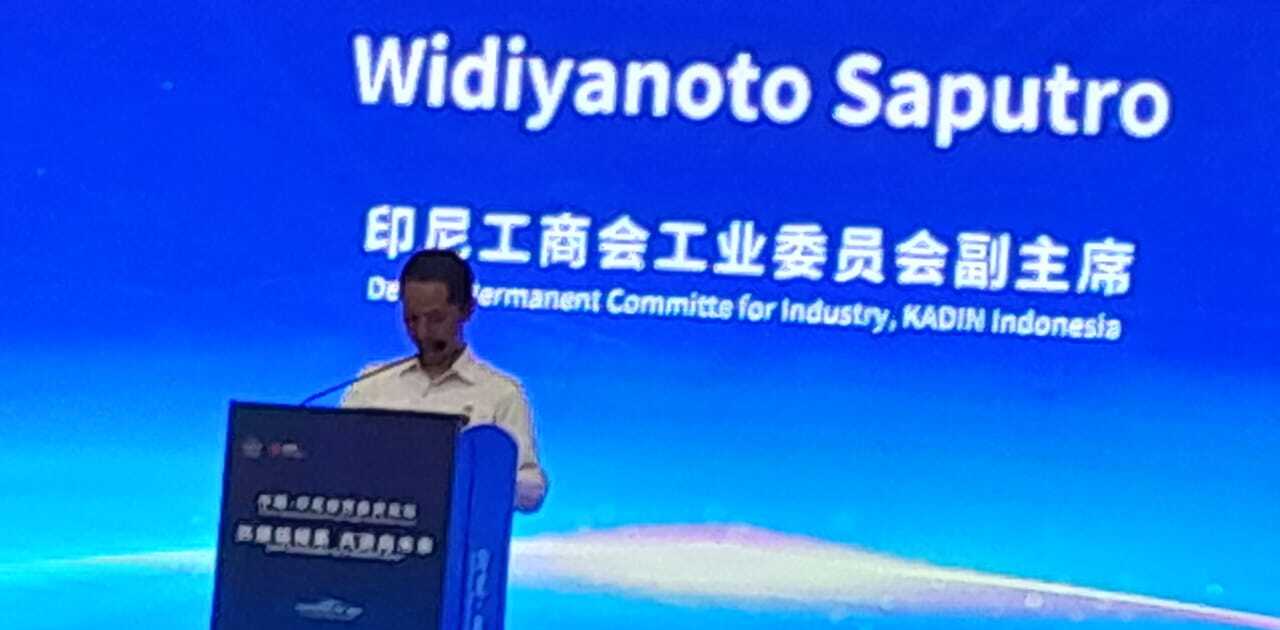Heaptalk, Jakarta — China-Indonesia Economic, Trade, and Investment Forum 2023 was held on October 19 at Ballroom 1 3F, Jakarta International Expo (JIExpo) with the aim to promote in-depth cooperation in the economic sector of the two countries.
This event was organized by the China Council for the Promotion of International Trade (CCPIT) Shanghai, known as the Chamber of International Commerce Shanghai; the Trade Development Bureau of the Ministry of Commerce of the People’s Republic of China; and the Indonesian Chamber of Commerce and Industry (Kadin Indonesia). Additionally, this forum is also supported by the Shanghai Integrated Service Center for The Belt and Road Initiative as well as the Shanghai Integrated Service Center for Enterprises Going Global.
Chairman of CCPIT Shanghai Minhao Zhou said that there is a long history of friendly exchanges between China and Indonesia. Joint efforts in the Belt and Road Initiatives (BRI) and the implementation of the Regional Comprehensive Economic Partnership (RCEP) are expected to form a new pattern of double-wheel-driven economic cooperation between Indonesia and China.
“As an organization that promotes international trade and investment between Shanghai and the rest of the world, we aim to serve Shanghai’s openness to the world and serve both Chinese and foreign companies,” Zhou said.
Industrial downstreaming and the advancement of Indonesia’s local industry
In the forum, Secretary II of the Chamber of Industry at Kadin Indonesia Widiyanto Saputro explained that the key to national development lies in two agendas, namely industrial downstreaming and the development of multi-player effects from the advancement of Indonesia’s local industries. Widiyanto voiced, “Indonesia needs to change various indicators towards a Golden Indonesia 2023. Hopefully, by 2038 we will have moved from a middle-income country to a high-income country.”

In more detail, Widiyanto said that the industrial downstreaming has begun to show positive results since the start of this project in 2003 through restrictions on tin ore exports. Downstreaming can boost state income as well as open up job opportunities. Meanwhile, the development of the multiplier effect is carried out by implementing the domestic content level (TKDN). “In almost two years, there have been 40,000 products that have certification above 25% and 27,000 of them already have TKDN above 40%. However, this amount is only 5% of the total products purchased by the Indonesian government,” Widiyanto voiced.
Associate Professor at the Institute of International Studies, Fudan University, Song Xue said that over the past decade, China-Indonesia economic and trade cooperation has made extraordinary achievements and both have overcome many unfavorable factors at home and abroad. “Indonesia and China continue to deepen their mutual trust and understanding so that China and Indonesia have successfully collaborated with each other to promote and inspire each other,” Xue said.
Empowering SMEs through digitalization
Meanwhile, in the enterprise sharing session, Vice President of Shanghai Decent Investment Xiaoxia Yang emphasized that the success of cooperation in international production capacity lies in complementing each other’s advantages and optimizing the structure of investment costs and production costs to build global competitiveness.
Yang uttered, “We need to investigate, experience, and learn Indonesian society and culture wholeheartedly to realize cultural integration and civilizational coexistence. Only by doing this can the core competitiveness of this industrial area stand out.”
On the other hand, Co-founder of Xingyun Group Matthew Chan said that his group is actively developing cross-border trade infrastructure and industrial cooperation in countries along the Belt and Road Initiative as well as empowering the development of SMEs with increasingly efficient digitalization. Further, Xingyun Group also contributes to providing employment opportunities, accelerating digitalization, and facilitating trade in Indonesia to promote Indonesia’s real economy. (Translated by Sinta)











